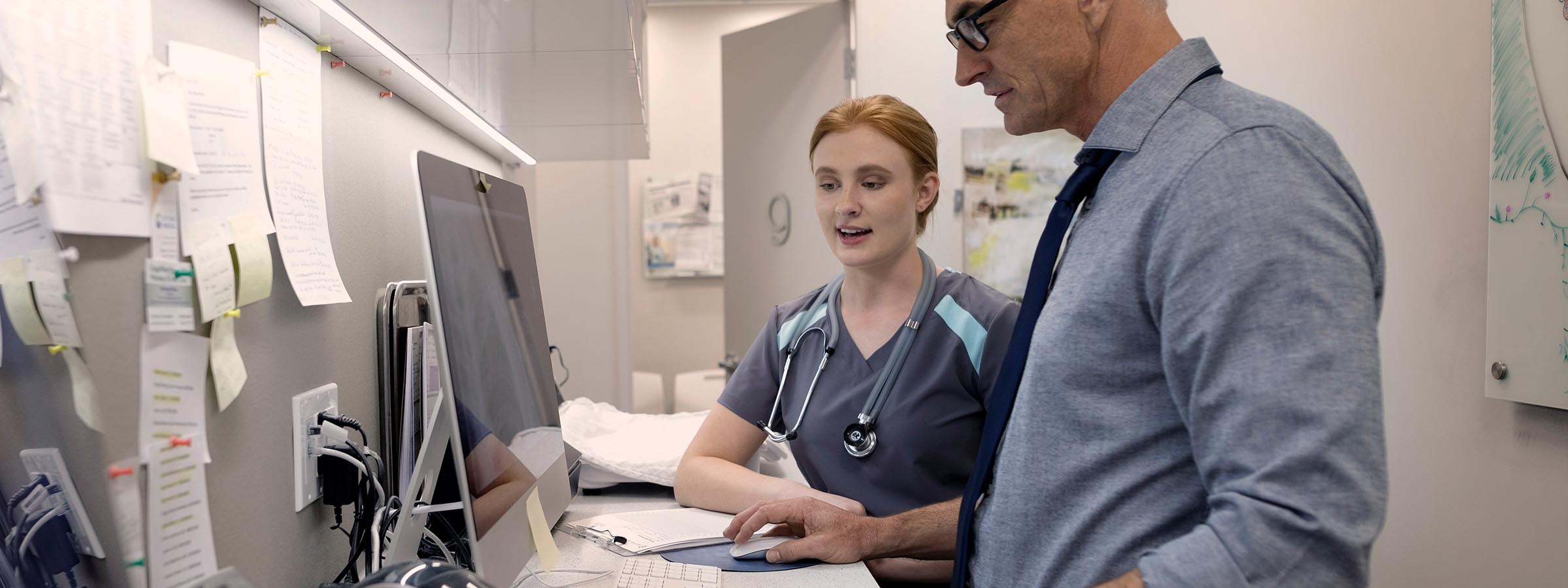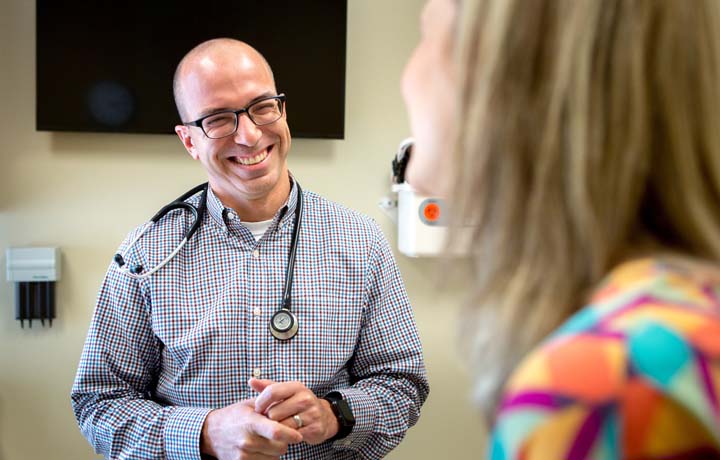Article
The latitude physicians really want
By Alison Pereto | January 30, 2019

Research from athenahealth's network shows physicians are less likely to report symptoms of burnout when they have the tools, resources, and latitude to work at the tops of their licenses. These three levers combine into a metric called capability.
Latitude, in particular, gives providers the freedom to use their best judgment delivering care. But what does it look like in practice? According to athenahealth's survey of more than 1,000 practicing physicians, clinicians mentioned three elements that contribute to their sense of latitude: autonomy against performance goals, innovative clinical roles, and team-based support as they care for their patients.
When healthcare leadership prioritizes these concrete methods, physicians can deliver better care while better caring for themselves.
Autonomy against performance goals
As standards of medicine are operationalized, providers feel increasing pressure to abide by top-down guidelines and “best practices" that have little to do with their own education or experience. And the more helpless physicians feel about their options for care delivery, the more likely they are to experience symptoms of burnout.
The key is not to throw metrics out the window, doctors say. It is, instead, for a healthcare organization to align with its physicians' values and build an environment of personal respect as they strive to optimize performance, engagement, and job satisfaction.
Some organizations are well on their way to achieving those goals. “We have to understand the new regulations, and we all have to abide by those," says Kenneth Bielak, M.D., a family medicine physician at the University of Tennessee Graduate School of Medicine. "But we have that independence of getting that task done, however way we think we want to get it done."
Bielak has a colleague who prefers to document during a patient visit and therefore “sees a higher volume of people, and codes at a higher level." Meanwhile, Bielak prefers only minimal documentation during a patient visit, understanding this may require a little time outside of regular office hours to catch up.
The result? Bielak says he still sees the second-highest number of patients in the practice, and both he and his colleague have solid patient satisfaction scores.
“Each of us are trained a little bit differently," says Bielak. “And as long as we're coding correctly and documenting adequately and doing things the right way, then do it."
Innovative clinical roles
Physicians benefit when their practices shift to team-based care and redistribute administrative work. However, in the long run, providers thrive most when matched with patients and situations that truly challenge and compel them. This might mean a balance of simple and clinical cases; teaching or administrative opportunities; or involvement in new service lines.
For Paul R. Sieber, M.D. at Lancaster Urology, a 13-physician practice, latitude means providers are able to specialize in the types of cases they find most fulfilling. “My partners send me pretty much all their patients that have complicated prostate cancer issues," he says. Such cases are both intellectually stimulating and personally rewarding.
Sieber has also spearheaded Lancaster Urology's thriving clinical trials practice. With 225 trials over 20 years, paid for by pharmaceutical companies, the program has helped get new drugs to market and connect Sieber's own patients with experimental trials.
With the right kind of autonomy, Sieber's passion for prostate cancer medicine can flourish at Lancaster – and his patients benefit.
Team-based support
While latitude is about individual freedom, clinical success seldom happens alone. The backing of a strong team liberates physicians to focus on care delivery – and stay healthy themselves.
Brian Titesworth, M.D., a pediatrician and internist at Clarkston Medical Group, came from a practice where he had to see 30 patients a day. “When you talk about physician burnout," he says, "that's where I was headed prior to switching."
Clarkston Medical Group, however, is different in one crucial way: Most of its administrators are also physicians – which means they have a deep understanding of what Titesworth needs to do his job. “If we have to do something new, they have a way to approach it; there's help to do it, and they make sure that we are happy with that process."
For instance, as Medicare regulations shifted, Clarkston began hiring ancillary staff to manage annual wellness checks. That allowed Titesworth and his colleagues to stay focused on the patient-physician relationship.
Additionally, Titesworth has help pulling charts, tracking down information from hospitalizations, and wrangling overall paperwork. And, perhaps best of all, the staff respects his scheduling autonomy.
“Now, I choose how much time I want with patients”
“Where I was before, my schedule was dictated for me. I had no control over it," says Titesworth. “Now, I choose how much time I want with patients."
That timing is based on his experience. For instance, a physical for a healthy mid-30s patient is likely to go quickly. However, a 78-year-old with multiple medical problems will need more time at an annual wellness visit for Titesworth to deliver thorough care.
The staff has learned his preferences and schedules him accordingly. “Our staff is capable; they're taking care of anything that I need," says Titesworth. “I don't have to try to do it myself."
A workplace built around trust
To a physician trying to practice top-line medicine in a managed care system, latitude may seem like a pipe dream. It doesn't have to be that way. Research from athenahealth shows that administrators would do well to trust their M.D.s – creating structures that loosen strict roles, enable optimal care delivery to flourish, and restore joy to the practice of medicine.
To physicians such as Bielak, latitude makes all the difference. “We're allowed the liberty of practicing as we want to."
Alison Pereto is senior writer for athenaInsight.






